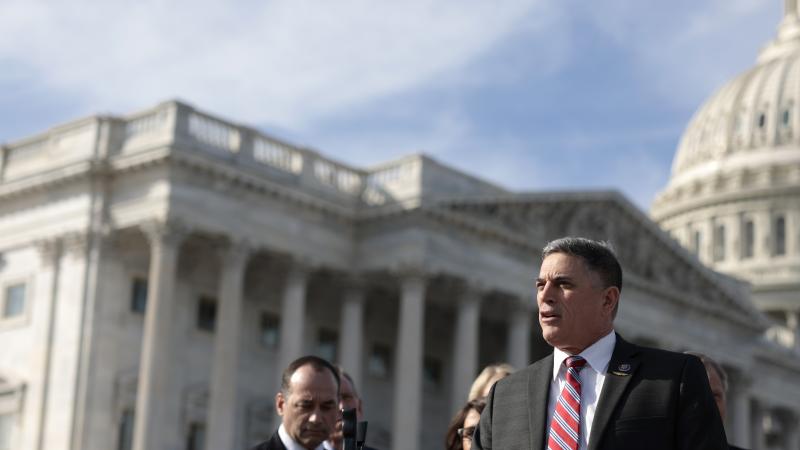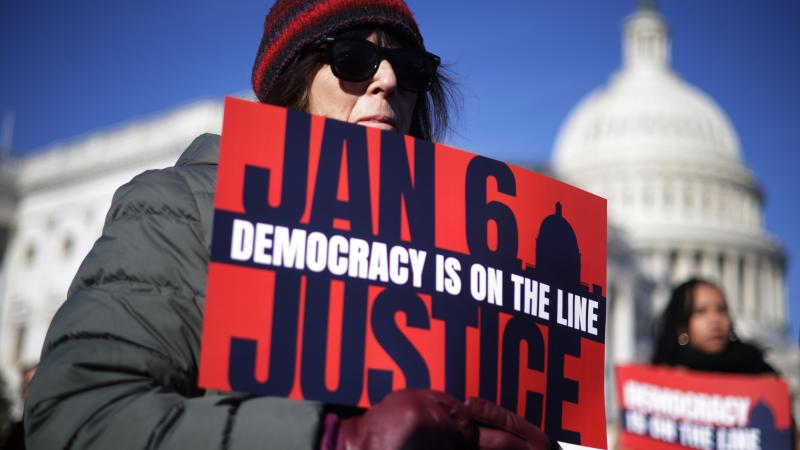Thirteen states sue to challenge tax provision in Democratic coronavirus relief law
The states involved in the lawsuit want the court to block enforcement of the provision and declare it to be unconstitutional.
A group of 13 states have lodged a lawsuit challenging a section of the recently approved $1.9 trillion coronavirus relief package pertaining to states' rights to reduce taxes.
The suit, which names the U.S. Treasury Department, Treasury Secretary Janet Yellen and Treasury Department acting Inspector General Richard Delmar as defendants, takes issue with a provision of the legislation which says states that receive federal relief funds cannot use those funds to "directly or indirectly offset a reduction in the net tax revenue" in the state.
"The Federal Tax Mandate thus usurps the ability of the Plaintiff States’ citizens to reduce their tax burdens and creates an impermissible chilling effect on their elected officials’ willingness to do the same—based on a threat that the federal government may claw back some or all of the States' share of critical ARPA funding," part of the suit declares.
A portion of the legislation states: "IN GENERAL.— A State or territory shall not use the funds provided under this section or transferred pursuant to section 603(c)(4) to either directly or indirectly offset a reduction in the net tax revenue of such State or territory resulting from a change in law, regulation, or administrative interpretation during the covered period that reduces any tax (by providing for a reduction in a rate, a rebate, a deduction, a credit, or otherwise) or delays the imposition of any tax or tax increase." The legislation also says: "No State or territory may use funds made available under this section for deposit into any pension fund."
A group of 21 state attorneys general in a letter to Treasury Secretary Janet Yellen earlier this month raised concerns that the bill could be interpreted as infringing on states' rights to reduce taxes.
"The undersigned State Attorneys General request that the Department of the Treasury take immediate action to confirm that certain provisions of the American Rescue Plan Act (the “Act”) do not attempt to strip States of their core sovereign authority to enact and implement basic tax policy," the letter said. It noted that the legislative text "could be read to deny States the ability to cut taxes in any manner whatsoever—even if they would have provided such tax relief with or without the prospect of COVID-19 relief funds."
In part of her response to the letter from the state attorneys general, Yellen declared: "Nothing in the Act prevents States from enacting a broad variety of tax cuts. That is, the Act does not "deny States the ability to cut taxes in any manner whatsoever." It simply provides that funding received under the Act may not be used to offset a reduction in net tax revenue resulting from certain changes in state law. If States lower certain taxes but do not use funds under the Act to offset those cuts—for example, by replacing the lost revenue through other means—the limitation in the Act is not implicated.
"It is also important to note that States choosing to use the federal funds to offset a reduction in net tax revenue do not thereby forfeit their entire allocation of funds appropriated under this statute. The limitation affects States' ability to retain only those federal funds used to offset a reduction in net tax revenue resulting from certain changes in state law," Yellen noted in her response.
The states involved in the lawsuit want the court to block enforcement of the provision and declare it to be unconstitutional.
















